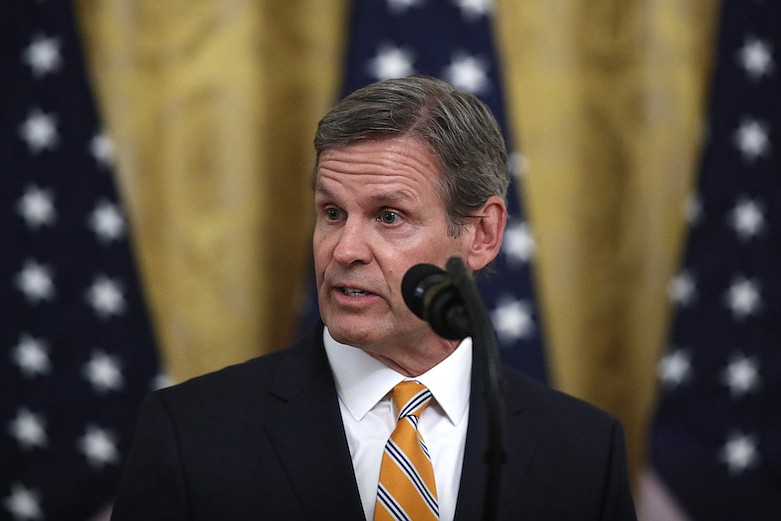NASHVILLE - Gov. Bill Lee says that while Tennessee is making progress on the coronavirus health front, the economic outlook here remains "disastrous" and he wants more flexibility from Washington on how the state can use some of the billions of dollars in federal relief it's getting.
The governor's office says economic assistance provided through Congress' Coronavirus Aid, Relief, and Economic Security (CARES) Act to the state as well as local governments, hospitals, other impacted areas as well as unemployed Tennesseans is now estimated at just shy of $5 billion. The state directly has control of about $2.6 billion and there are guardrails on how the money is spent.
The Republican governor told members of his Financial Stimulus Accountability Group on Tuesday that he plans to hold back on spending some of the state's direct share of the economic relief money until he can get federal guidance on whether he can spend it in some areas such as "backfilling" state revenue shortfalls.
Tennessee tax revenues are under siege as spending by consumers and businesses falls off a financial cliff.
One of Lee's stated concerns is the state's $1.2 billion unemployment insurance trust fund, which over the past eight weeks has spent some $260 million as part of its share of the program funded jointly by the federal government and the state. Payments have been given to some 300,000 jobless Tennesseans who've lost work during the pandemic and are now receiving unemployment aid.
The federal government through the CARES Act has also kicked in some $1.4 billion to the state through the Federal Pandemic Unemployment Compensation program (FPUC), which provides an additional $600 per week to individuals who are collecting regular Tennessee unemployment, which has some of the nation's lowest weekly benefits.
Among Lee and others' concerns is that if the state's fund falls below $1 billion, thousands of struggling and currently shuttered businesses could find them themselves slapped with substantial increases in the taxes they pay to support the program.
It's in effect a double whammy, administration officials say, noting that it could raise their unemployment insurance premium paid per employee by 25% a year.
"I propose until that is clear that we ought, at least on the front end, put aside a significant portion for the potential of backfilling revenue," Lee told the group, whose members include top Lee administration officials and lawmakers, including Republican Senate Speaker Randy McNally, House Speaker Cameron Sexton and Senate Finance Committee Chairman Bo Watson of Hixson.
Lee emphasized "we can make changes to that going forward if we find that is not possible, then those monies can be spent another way. From my perspective we look at this backfilling of revenue for the budget so we would not have a negative impact on Tennesseans as a whole."
Tennessee should be looking "at individual relief and ways that we can provide for relief through unemployment insurance and individuals who've lost their jobs as a result of this," Lee said.
The discussion about the unemployment fund stemmed from questions posed by Watson who cited discussions among lawmakers and unspecified members of the "public" about a need to "shore up" the fund.
Finance Commissioner Butch Eley said in response that "what we're trying to do is to go ahead and start the process now of basically reimbursing the expenditures that we're already making out of that fund now, a little over $266 million so far. And of course that continues to go up every week."
So Eley said "we're trying to do that in a manner and we've worked out a way of doing that through the Department of Labor and Finance to make sure that we don't dip below that $1 billion mark."
"We're hopeful to fill it back up proportionally so that we end up where we were," Eley said. "Now that obviously has an impact on how we expend the other funds as well and that'll be something we have to balance. But that's kind of the intent now and hope is now, especially as we go forward."
Contact Andy Sher at asher@timesfreepress.com. Follow him on Twitter @AndySher1.
